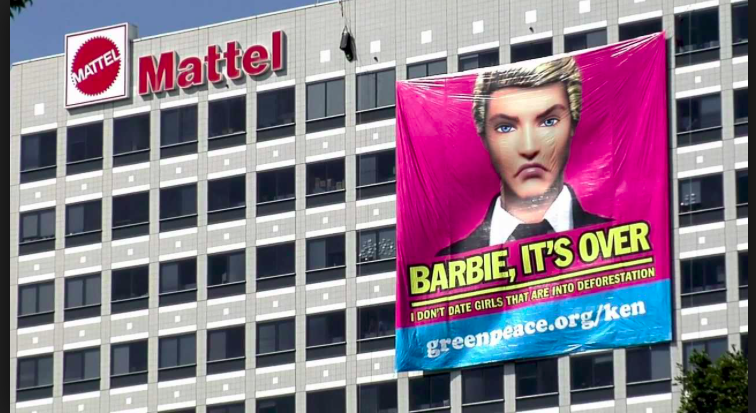A friend is working on a tricky public issue where a group of NGOs are challenging their client. They asked for some advice. As I get the questions quite a lot, I am summarising the advice. I’ll add to it over time. I think they asked me because I ran NGOs campaigns on fisheries, bushmeat, and some others things.
1. Read the NGO campaign playbook and learn from it.
Environmental NGOs use the work of Chris Rose. Chris has written two excellent books: ‘How to win Campaigns: Communications for Change’ and “What Makes People Tick”.
In broad brush strokes Chris Rose explains how to develop and implement a campaign, as well as how to develop and implement your messages and language for the campaign.
Both books are excellent. Go out and buy them. They are on kindle. You will get a good idea on what’s going to happen to you.
2. Work with the NGO
I have worked with a lot of companies who have had a large NGO knocking on their door. They have landed up working with them. They sometimes do this publicly and sometimes with less publicity.
NGOs want to solve a problem. They are knocking on your door as part of a programme to solve an issue. Company leadership and NGOs have sat down, signed the non-disclosure agreements, and solved the problem. Everybody wins. The environmental issue is solved and the company avoids the embarrassment and financial risk.
3. Don’t fool yourself
Too often companies live in denial. They don’t think it is a problem. Worse, they don’t think the people they are dealing with have done their homework. All too often, they ignore the tell tale signs that they are going to be hit.
I have worked with NGOs who before launching a campaign learned an industry’s supply chain back to front. It seemed we knew their supply chain better than most of the key players in the industry.
NGOs do their research. They read the same trade press and consultancy you do. When needed, they’ll use the same lawyers, accountancy and other service firms a company will use to find out what is really going in. It’s genuinely amazing how you can track something with modern technology.
I find denial is the very worst option.
4. 90% of campaigns don’t go anywhere
Despite what you think, most NGO campaigns don’t take off. Many don’t even get off the ground. The NGO can’t find a convincing “theory of change to” shift from where they are to where they want to be. They can’t finance the work to deliver the campaign. If their reserves, members or donors won’t pay for the campaign, it won’t get done.
That means if you are hearing about it, it means the NGO got past the real hurdles, and you are likely facing a well-funded and researched initiative.
5. You are dealing with professionals
It’s best to accept that you are dealing with campaign professionals and in all likelihood your team is outclassed.
In my experience, you will be up against a team of seasoned campaign professionals who are scientists, lawyers, PR, journalists, and lobbyists. This is unlikely to be their first gig.
All of a sudden, you’ll be dealing with people who are at the top of their game.
6. Just say no
You can just choose to ignore the campaign.
The worse that can happen is social ostracism at dinner parties and financial divestiture from investment houses.
There are many profitable and successful firms who continue despite being subject to NGO campaigns. Not all campaigns succeed.
7. You need help
Too many people think that dealing with the media is easy. They are wrong. This video shows you how not to do it. Most people the first time in front of a journalist make this look good.
8. Keep it simple
Campaigners know it is best to keep things simple.
You can learn from them. If you have a complex response, simplify it.
If you are not sure how to, speak to your marketing department or advertising firm.
9. Emotions work
As a species, we react positively to certain images. It appears it is on our DNA. So when we see images like this it impacts us.
If you think this is about our facts – v their facts, you have lost already. You are communicating with people and this is not your quarterly report to the markets.
10. Values work
Firms understand how “values” influence people’s perceptions. Or at least their marketing departments do.
Good campaigners, will develop a whole set of messages and supporting materials for settlers, pioneers, and prospectors. Every time I have done, my client has won.
11. You need to resource your defence
In my experience, NGOs simply just spend a lot more than those they are taking on. Usually, they outspend by some margin.
If you want to defend yourself, you will need to spend.
It is not cheap to roll out ads like this.
12. Do your homework
As a rule of thumb, when I ran NGO campaign I spent 10-20% of a the final spend on research.
Getting your case together is key. Skimping here will set you back later on and often guarantee you lose.
Key bits of political campaign research are looking at votewatch europe and analysing similar votes. I think it is also key to prepare responses to all the likely arguments that you are going to face. It’s better to have the responses to the follow up points as well.
13. Social Network Analysis
The best campaigners will have a list of the key decision makers and influencers on the issue. You’ll have the same. You are trying to influence a final decision so it is essential you know who is going to make the decision.
If you don’t, you must enjoy driving your car blindfolded and not driving a Tesla.
14. Have a written plan
You have to a plan written down on how to deal with this.
Any campaign that does not have a written plan will fail. I think you can guarantee the success or failure of a campaign by the absence of a written plan.
15. Can you speak with society
I think the greatest challenge a company faces when dealing with a NGO campaign against them is they don’t know what they are dealing with. You are dealing with a conversation with society. You can join the conversation. If you don’t, your fate is sealed. Most people don’t get this.
If you lock yourself away, you’ll loose. NGOs are trusted by the public far more than companies or government. If enough of the public back them, politicians will follow them. If enough of the public ask their supermarkets to change what they sell, they will change what they sell. NGO campaigns ask society to do something for the greater good.
16. Keep the experts locked up
NGOs have their of scientists, issue experts and policy wonks. They are not campaigners. Only a few can communicate outside their narrow domain. They are kept behind the scenes. They’ll only be used as and when necessary. They don’t decide campaign strategy and messaging. They provide input, but they don’t decide.
It’s something you may want to copy.
17. Be decent
It’s key to pleasant and civil at all times. People will see the worst in you if your react emotionally or threaten people with lawyers.
If your people can’t manage to do that, move them away from the front line, and don’t allow them near anyone dealing with the public side of things.
18. Think what failure looks like and prepare for it
It’s best to be prepared for the reasonable worst case scenario. It sets up external checkpoints to understand when to change tactics or call for peace. Too often, this is not done, and events overwhelm a company. What was yesterday’s worst case scenario is today’s best case scenario.
19. Trust
This is the hard news. The public are going to trust many NGOs more than they trust you. A lot of politicians are going to give them the benefit of the doubt.
You are going to have to have a large bedrock of will across the political spectrum to avoid the mud sticking. Some firms, like Unilever, have that trust. They earned it. It took a long time. In the 1990s they were a pariah.
20. Hire in professional help
If you want to fight back, you are going to need professional help. Would you go to Court and represent yourself?
21. Mirror their strategy and tactics.
NLP teaches us about mirroring the best and learning their strategies. My best advice, is mirror the best. Chris Rose show you how the steps.

